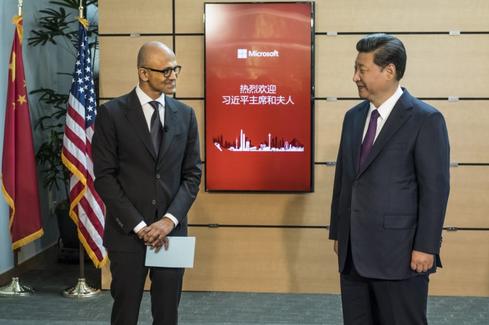Microsoft finally released Office 2016 to Windows PCs this week. Organizations participating in a volume licensing agreement can download the new Office suite from the Volume Licensing Service Center on Oct. 1.
Updates have been made for each app in the Office portfolio including Word, Excel, PowerPoint, Outlook, OneNote, Access, Project, and Visio.
The suite has been redesigned to enhance collaboration. New features like real-time co-authoring are intended to help people work together. Other additions include Skype for Business across Office client apps, and Tell Me for searching specific capabilities within each app.
Office 2016 has a few features specific to business users, including security measures like data loss prevention and multifactor authentication. Clutter, now available in exchange, leverages machine learning to sift through inboxes and separate important emails from low-priority notes.
[New to iOS 9? Try these tricks.]
Enterprise customers using Office 365 ProPlus can continue downloading their regular monthly updates. Microsoft is also introducing an alternate update method for these subscribers called Current Branch for Business, which delivers monthly security fixes and three feature updates per year.
Other updates from this week include rumors surrounding the new Microsoft Band. Redmond's wearable is primarily a health monitor designed to track steps, heart rate, caloric burn, and quality of sleep; however, it also displays calendar alerts and previews for email messages.
Leaked images of the Band 2 suggest it will have a curved display, which would be a welcome and modernized change from the flat screen of its predecessor. The source of the leak, Spanish Blog MicrosoftInsider, also notes the upgraded Band will have broader availability in Europe.
The wearable is expected to debut at an upcoming Windows 10 hardware launch event in New York City, where we also hope to hear details about the new Surface Pro 4 and Lumia smartphones.
This week marked some major progress for Microsoft's growing relationship in China. President Xi Jinping, First Lady Peng Liyuan, and a high-level group of delegates paid a visit to Microsoft's campus to discuss the role of technology in health, education, and business advancements.
Xi Jinping spent his time in Redmond meeting with Microsoft execs and board members, including Bill and Melinda Gates, and participating in demos of technologies like augmented reality headset HoloLens and data virtualization on an 84-inch Surface Hub, Microsoft reports.
The company is on the verge of major expansion in China, as evidenced by seven agreements confirmed between Microsoft and various Chinese companies and governmental organizations, including CETC, Xi'xian, Xiaomi, Shanghai Oriental Pearl Media Company, and the Sichuan Provincial Government.
One deal garnering major attention is the partnership between Microsoft and Chinese search giant Baidu, which is intended to broaden Windows 10 adoption. Baidu has agreed to place a "Windows 10 Express" button to simplify the upgrade for its 600 million users. In exchange, Microsoft will make Baidu the default homepage and search engine in its Edge browser.
Finally, Microsoft released another mobile offering for iOS devices this week. The app, entitled Invite, is designed to help with scheduling meetings on the go.
You can use Invite to suggest meeting times within a group and invite attendees from within or outside your business. Invitees can choose times that work for them and see which options are best for other group members. Once you have all the responses, you can choose a final time and send invites.
Officials claim the app works best with Office 365 business and school accounts, but it will also work with email accounts from Outlook.com, Gmail, and Yahoo Mail. Invite is currently exclusive to iOS but is promised to roll out to Android and Windows Phone.
Kelly is an associate editor for InformationWeek. She most recently reported on financial tech for Insurance & Technology, before which she was a staff writer for InformationWeek and InformationWeek Education. When she's not catching up on the latest in tech, Kelly enjoys ... View Full Bio

0 comments:
Post a Comment